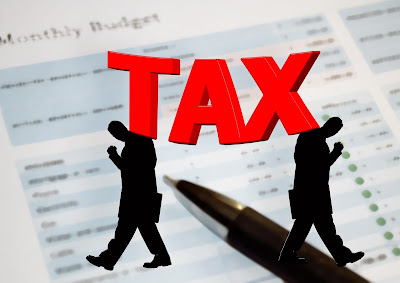by Ateet Kapadia, Listen to Podcast
In Canada, the tax season typically begins in mid-February and runs until the end of April. This is the time when Canadians can file their tax returns and receive any refund they may be owed. During this time, the Canada Revenue Agency (CRA) is open for business and processing returns, and Canadians are encouraged to submit their tax returns as soon as possible.
The tax season is a crucial time for many Canadians as it often represents the opportunity to receive a significant tax refund. This money can be used to pay down debt, invest in an RRSP, or simply put towards everyday expenses. Understanding when the tax season starts is therefore important for Canadians who want to make the most of their tax returns.
The actual start date for the tax season can vary from year to year, but typically it starts in mid-February. This is when the CRA begins processing returns, and it is also when electronic filing becomes available for most Canadians. Many tax preparation software providers, including TurboTax and H&R Block, start accepting tax returns around this time as well.
It's important to note that the tax season does not end until the end of April. During this time, Canadians have the opportunity to file their tax returns, even if they have not yet received all of the necessary documentation. If you need more time to complete your tax return, you can file a request for an extension, which will give you until August 31 to submit your return.
There are several things that you can do to prepare for the tax season and ensure that you are ready to file your return as soon as it becomes available. The first thing to do is to gather all of the necessary documentation, including your T4 slips, RRSP contributions, and any other receipts or forms that are required to complete your tax return. It is also a good idea to familiarize yourself with the tax rules and regulations that apply to you so that you can take advantage of any deductions or credits that you may be eligible for.
Additionally, it is important to choose the right tax preparation software or service that will help you quickly and easily complete your tax return. There are a variety of options available, including free online services, software that you can download to your computer, and professional tax preparation services that you can visit in person. Each option has its own advantages and disadvantages, so it's important to consider your individual needs and preferences when choosing the best one for you.
In conclusion, the tax season in Canada typically begins in mid-February and runs until the end of April. This is the time when Canadians can file their tax returns and receive any refund they may be owed. Understanding when the tax season starts is important for Canadians who want to make the most of their tax returns, and there are several things that you can do to prepare for the tax season and ensure that you are ready to file your return as soon as it becomes available.
Frequently Asked Questions-
Q. When can I file my
2022 tax return in Canada?
A. In Canada, the tax season typically starts in late January and continues until April 30th. This is the period during which individuals can file their income tax returns and claim any tax refunds they may be entitled to. However, the exact start date for the 2022 tax season has not been officially announced yet. It is always a good idea to check the Canada Revenue Agency (CRA) website for the most up-to-date information.
Q. What is the Tax filing
deadline in 2023 in Canada?
A. The tax filing deadline for the 2023 tax year in Canada is April 30th, 2023. It is important to note that self-employed individuals and their spouses have until June 15th, 2023 to file their taxes, however, any balance owed is still due by April 30th, 2023. It is recommended to file your tax return as soon as possible to receive any potential tax refund sooner and avoid any penalties and interest charges. If you require additional time to file, you can request a tax extension by submitting a form to the Canada Revenue Agency.
Q. What is an Empty
homes tax declaration in Canada?
A. The Empty Homes Tax in Canada is a tax imposed on properties that are left vacant for more than six months in a year. The tax is aimed at encouraging property owners to either rent out their homes or put them to some other productive use. The tax rate is 1% of the property's assessed taxable value and is applicable in cities like Vancouver and West Vancouver. Property owners are required to declare their properties as either occupied or vacant, and failure to do so can result in penalties. The tax revenue generated is used for funding affordable housing initiatives and community projects.

No comments:
Post a Comment